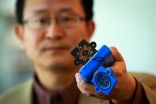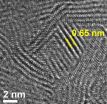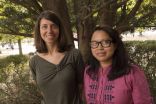Can (and should) happiness be a policy goal?
2014-11-04
(Press-News.org) Los Angeles, CA (November 4, 2014) How does an individual's happiness level reflect societal conditions? A new article out today in the first issue of Policy Insights from the Behavioral and Brain Sciences (PIBBS) finds that similar to how GDP measures the effectiveness of economic policies, happiness can and should be used to evaluate the effectiveness of social policies.
Authors Shigehiro Oishi and Ed Diener examined research evaluating the effectiveness of policy related to unemployment rate, tax rate, child care, and environmental issues to determine if it's possible to study how this policy affects individuals' psychological well-being. They found that the research does indeed illustrate the degree of suffering among people in different types of difficult circumstances. For example, recent research has found that people with severe disabilities are roughly two times less satisfied with their lives than those who are merely unemployed. The researchers concluded that such findings can and should help prioritize policy-related welfare programs and regulations.
The researchers wrote, "Self-reported well-being can be used to evaluate whether a specific policy had an impact on population at large. For instance, did a change in an education policy (e.g., No Child Left Behind Act of 2001) increase stress among parents? Self-reported well-being data will provide an answer to such a question."
The researchers wrote that periodically recording (e.g., monthly, quarterly) citizens' well-being will allow policymakers and researchers to test whether a certain policy had an intended effect and whether a society is making progress toward its ideal.
"We believe that an ideal society is a society where citizens feel happy, feel satisfied, and find their lives to be meaningful."
INFORMATION:
The new PIBBS journal includes 33 articles, published today, on pressing social issues as they relate to policy. The following seven articles relate to general wellbeing and policy. Full-text copies can be accessed by emailing camille.gamboa@sagepub.com.
- "Educational Attainment and Life Expectancy" by Robert M. Kaplan, Michael L. Spittel, and Tia L. Zeno
- "Can and Should Happiness Be a Policy Goal?" by Shigehiro Oishi and Ed Diener
- "Reducing Racial Health Care Disparities: A Social Psychological Analysis" by Louis A. Penner, Irene V. Blair, Terrance L. Albrecht, and John F. Dovidio
- "A Multilevel Analysis of Stigma and Health: Implications for Research and Policy" by Laura Smart Richman and Mark L. Hatzenbuehler
- "Public Policy and Health: A Self-Affirmation Perspective" by Phillip J. Ehret and David K. Sherman
- "Relative Deprivation: How Subjective Experiences of Inequality Influence Social Behavior and Health" by Heather J. Smith and Yuen J. Huo
- "Psychological Aspects of Contraception, Unintended Pregnancy, and Abortion" by Julia R. Steinberg and Lisa R. Rubin
SAGE is a leading international publisher of journals, books, and electronic media for academic, educational, and professional markets. Since 1965, SAGE has helped inform and educate a global community of scholars, practitioners, researchers, and students spanning a wide range of subject areas including business, humanities, social sciences, and science, technology, and medicine. An independent company, SAGE has principal offices in Los Angeles, London, New Delhi, Singapore and Washington DC. http://www.sagepublications.com
Policy Insights from the Behavioral and Brain Sciences is a new annual publication that presents original research and scientific reviews relevant to public policy. This annual will
Allow scientists to share research that can help build sound policies.
Allow policymakers to provide feedback to the scientific community regarding research that could address societal challenges.
Encourage the scientific community to build models that seriously consider implementation to address the needs of society.
ELSE PRESS RELEASES FROM THIS DATE:
2014-11-04
Los Angeles, CA (November 4, 2014) The growing disparity in economic inequality has become so stark that even Janet Yellen, Federal Reserve chairwoman, recently expressed concern. Interestingly, new research has discovered that American citizens desire an unequal, but more equal distribution of wealth and income. Lower levels of this "unequality" are associated with decreased unethical behavior and increased motivation and labor productivity. This study is published today in the inaugural issue of Policy Insights from the Behavioral and Brain Sciences (PIBBS).
"People ...
2014-11-04
Los Angeles, CA (November 4, 2014) With so much attention to curriculum and teaching skills to improve student achievement, it may come as a surprise that something as simple as how a classroom looks could actually make a difference in how students learn. A new analysis finds that the design and aesthetics of school buildings and classrooms has surprising power to impact student learning and success. The paper is published today in the inaugural issue of Policy Insights from the Behavioral and Brain Sciences (PIBBS).
Surveying the latest scientific research, Sapna Cheryan, ...
2014-11-04
SALT LAKE CITY, Nov. 4, 2014 – University of Utah engineers have developed a new type of carbon nanotube material for handheld sensors that will be quicker and better at sniffing out explosives, deadly gases and illegal drugs.
A carbon nanotube is a cylindrical material that is a hexagonal or six-sided array of carbon atoms rolled up into a tube. Carbon nanotubes are known for their strength and high electrical conductivity and are used in products from baseball bats and other sports equipment to lithium-ion batteries and touchscreen computer displays.
Vaporsens, ...
2014-11-04
PROVIDENCE, R.I. [Brown University] — We celebrate our triumphs over adversity, but let's face it: We'd rather not experience difficulty at all. A new study ties that behavioral inclination to learning: When researchers added a bit of conflict to make a learning task more difficult, that additional conflict biased learning by reducing the influence of reward and increasing the influence of aversion to punishment.
This newly found relationship between conflict and reinforcement learning suggests that the circuits in the frontal cortex that calculate the degree of ...
2014-11-04
HOUSTON – (Nov. 4, 2014) – Rice University scientists who want to gain an edge in energy production and storage report they have found it in molybdenum disulfide.
The Rice lab of chemist James Tour has turned molybdenum disulfide's two-dimensional form into a nanoporous film that can catalyze the production of hydrogen or be used for energy storage.
The versatile chemical compound classified as a dichalcogenide is inert along its flat sides, but previous studies determined the material's edges are highly efficient catalysts for hydrogen evolution reaction ...
2014-11-04
HOUSTON – (Nov. 4, 2014) – A majority of Madagascar's 101 species of lemurs are threatened with extinction, and that could have serious consequences for the rainforests they call home. A new study by Rice University researchers shows the positive impacts lemurs can have on rainforest tree populations, which raises concerns about the potential impact their disappearance could have on the region's rich biodiversity.
A large proportion of trees in Madagascar's rainforest have fruits eaten by lemurs. Lemurs in turn disperse the seeds of their fruit trees throughout ...
2014-11-04
OAK BROOK, Ill. – Researchers using coronary computed tomography angiography (CCTA) have found a close association between high-risk coronary artery plaque and a common liver disease. The study, published online in the journal Radiology, found that a single CT exam can detect both conditions.
Previous research has shown that CCTA can detect high-risk coronary artery plaque, or plaque prone to life-threatening ruptures. For the new study, researchers looked at associations between high-risk plaque and non-alcoholic fatty liver disease (NAFLD), a condition characterized ...
2014-11-04
Over eighty percent of breast cancer patients in the United States use complementary therapies following a breast cancer diagnosis, but there has been little science-based guidance to inform clinicians and patients about their safety and effectiveness. In newly published guidelines from the Society for Integrative Oncology, researchers at Columbia University's Mailman School of Public Health and the Herbert Irving Comprehensive Cancer Center with colleagues at MD Anderson Cancer Center, University of Michigan, Memorial Sloan Kettering, and other institutions in the U.S. ...
2014-11-04
PHILADELPHIA - Two new studies from the Abramson Cancer Center and the Perelman School of Medicine at the University of Pennsylvania offer hope for breast cancer survivors struggling with cancer-related pain and swelling, and point to ways to enhance muscular strength and body image. The studies appear in a first of its kind monograph from the Journal of the National Cancer Institute Monographs focusing on integrative oncology, which combines a variety of therapies, some non-traditional, for maximum benefit to cancer patients.
In the first study, A Hybrid Effectiveness-Implementation ...
2014-11-04
Chestnut Hill, MA (November 4, 2014): Whether it's politics in the United States or violent conflict in the Mideast, the roots of the vitriol and intractability begin to grow not from a hatred of the other side, but from a misunderstanding of what's motivating the other side. According to a new study co-authored by a Boston College neuroscientist, not only does this misunderstanding pose a barrier to solutions, but it can be corrected through financial incentives.
The research involved the participation of almost 3,000 people: Israelis and Palestinians in the Mideast, ...
LAST 30 PRESS RELEASES:
[Press-News.org] Can (and should) happiness be a policy goal?


